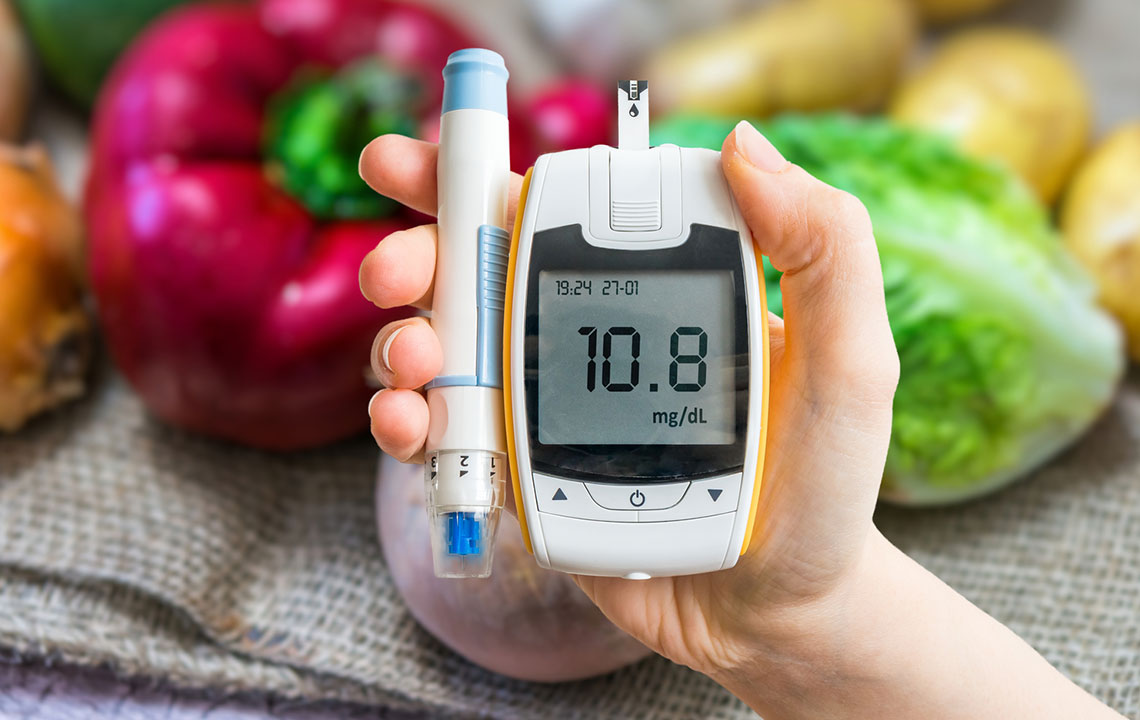Foods That Should and Should Not Be Eaten by Diabetics
When you have been diagnosed with diabetes, the first thing that almost anyone ever recommends or even utters to you is to control your food. Diabetes is one condition that is directly related to the food you eat. While you may be following a balanced diet, you always need to ensure that what you are eating is indeed right for you. Having certain food for diabetes can end up wreaking havoc in the long run. Here is a list of food for diabetes that you avoid and certain food for diabetes that you should consume under each category:
Vegetables
This is the most important food items that a diabetic must include in their daily diet plan.

Tips
- Best way to integrate vegetables into your diet is to eat them fresh and raw or you can also steam, roast, or grill them.
- If you are going for frozen vegetables, stick to steaming them.
- Pick only canned vegetables that are unsalted and are low in sodium.
- Best greens to add are spinach, arugula, and kale.
Food items that should be avoided
- Canned vegetables that are loaded with sodium
- Cooking vegetables in cheese, sauce, or even butter
- Pickles with high amounts of sodium. The same applies for sauerkraut as well.
Starch
Most often people with diabetes think that carbs are bad food choices. However, there are some carbs that are healthy and can be consumed in limited quantities.
Tips
- You can add baked sweet potatoes as they are healthy.
- Whole grains are allowed. The best ones are oatmeal, millet, amaranth, quinoa, and brown rice.
- You should ensure that you cook the meals with whole grains but add little or absolutely zero sugar or salt in them.
Food items that should be avoided
- Do not consume any form of processed grains such as white flour or white rice. These two are the worst carb foods for diabetes.
- Do not add any form of cereals even if they have little whole grain additions, and definitely none that contains sugar.
- Foods for diabetes that have to be strictly avoided are french fries, white bread, and tortillas made of white flour.
Fruits
There are a wide variety of fruits that are the best food for diabetes since they have a balance of minerals, vitamins, fiber, and carbohydrates. While most of them are natural in terms of having low sodium and fat content, the carbs content is higher than in vegetables.
Tips
- Consume a lot of fresh fruits.
- Make sure you only choose frozen or canned fruits that do not have any form of added sugars.
- Choose jam or preservatives that have low or zero sugar content.
- Best applesauce is the one that has zero sugar.
Food items that should be avoided
- Any form of canned fruit that is loaded with sugar syrups
- Any form of chewy fruit rolls
- Do not opt for any of the regular jelly, preserves, or jams, they contain a high amount of sugar even when consumed in moderation
- Avoid sweetened applesauce, fruit drinks, fruit punch, and even fruit juice drinks
Proteins
There are a lot of choices for food for diabetes in this category and they include fish, pork, chicken, beef, seafood, cheese, eggs, nuts, beans, tofu, among others.
Tips
- According to an association, some of the best ingredients that you can eat in this category are – plant-based proteins (nuts, seeds, tofu, and beans), fish, seafood, chicken, eggs, other poultry forms, and low-fat dairy.
- When you choose any form of meat, make sure you choose the ones that have a lower or minimal amount of fat.
- Avoid eating the skin in any form of poultry, including chicken.
- It is best to add in some plant-based protein forms into your diet as they are equally good substitutes for natural fibers and nutrients, which are quite less in animal-based products.
Food items that should be avoided
Make sure you stay off or only rarely eat these items in moderation – pork bacon, deep-fried fish and seafood, fried forms of meat, meat that are too fatty, the skin of poultry, deep-fried plant proteins such as tofu, and any form of lard prepared beans. As far as dairy is concerned, you need to ensure that you consume only low-fat food items in small portions. Avoid whole milk, regular forms of yogurt, sour cream, cheese, and ice cream.

